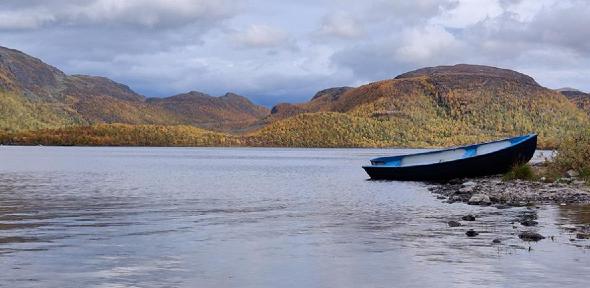
A study of 29 European lakes has found that some naturally-occurring lake bacteria grow faster and more efficiently on the remains of plastic bags than on natural matter like leaves and twigs.
The bacteria break down the carbon compounds in plastic to use as food for their growth. The scientists say that enriching waters with particular species of bacteria could be a natural way to remove plastic pollution from the environment. The effect is pronounced: the rate of bacterial growth more than doubled when plastic pollution raised the overall carbon level in lake water by just 4%.
The results suggest that the plastic pollution in lakes is ‘priming’ the bacteria for rapid growth – the bacteria are not only breaking down the plastic but are then more able to break down other natural carbon compounds in the lake. Lake bacteria were found to favour plastic-derived carbon compounds over natural ones. The researchers think this is because the carbon compounds from plastics are easier for the bacteria to break down and use as food.
The scientists caution that this does not condone ongoing plastic pollution. Some of the compounds within plastics can have toxic effects on the environment, particularly at high concentrations.
"It’s almost like the plastic pollution is getting the bacteria’s appetite going. The bacteria use the plastic as food first, because it’s easy to break down," Dr Andrew Tanentzap, Department of Plant Science
“It’s almost like the plastic pollution is getting the bacteria’s appetite going. The bacteria use the plastic as food first, because it’s easy to break down, and then they’re more able to break down some of the more difficult food – the natural organic matter in the lake,” said Dr Andrew Tanentzap in the University of Cambridge’s Department of Plant Sciences, senior author of the paper.
He added: “This suggests that plastic pollution is stimulating the whole food web in lakes, because more bacteria means more food for the bigger organisms like ducks and fish.”
The effect varied depending on the diversity of bacterial species present in the lake water – lakes with more different species were better at breaking down plastic pollution.
A study published by the authors last year found that European lakes are potential hotspots of microplastic pollution.
When plastics break down they release simple carbon compounds. The researchers found that these are chemically distinct to the carbon compounds released as organic matter like leaves and twigs break down.
Image credit: Samuel Woodman

